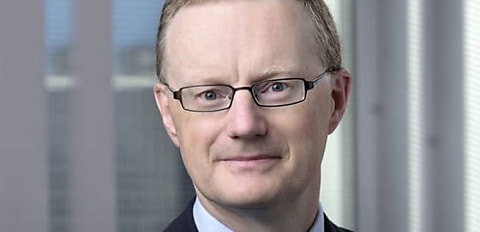The Reserve Bank of Australia (RBA) has confirmed it will hold the official cash rate at 4.10 per cent today (1 August 2023) for the second consecutive month.
This is the first time the central bank has held the cash rate steady for two consecutive months in over a year (the last time being March–April 2022) and the third time the cash rate has been paused since May 2022.
RBA governor Philip Lowe said in the post-decision statement: "The higher interest rates are working to establish a more sustainable balance between supply and demand in the economy and will continue to do so."
"In light of this and the uncertainty surrounding the economic outlook, the Board again decided to hold interest rates steady this month.
"This will provide further time to assess the impact of the increase in interest rates to date and the economic outlook," Mr Lowe said.
However, the outgoing RBA governor added that "some further tightening of monetary policy may be required to ensure that inflation returns to target in a reasonable timeframe" depending on data and the evolving assessment of risk.
He concluded that the board will continue to pay close attention to developments in household spending, the global economy and the outlook for inflation and the labour market.
Treasurer Jim Chalmers said that Australians have been “under the pump” as a result of higher interest rates.
“People are having to make difficult decisions about their household finances,” Mr Chalmers said.
“The government’s number one priority is taking the edge off some of these cost‑of‑living pressures without adding to inflation.”
Reacting to the decision, CreditorWatch chief economist Anneke Thompson stated: “A better-than-expected inflation rate over the June quarter, as well as slowing retail sales growth points to cooling economic conditions."
“And while the unemployment rate is still at record low levels, the forward indicators of employment conditions all point to a much tighter jobs market going forward.”
PropTrack senior economist Eleanor Creagh said subsiding momentum in inflation and consumer spending have “eased the pressure off the RBA to continue lifting interest rates”.
“The high level of inflation that has challenged the Australian economy and seen interest rates rise at the fastest pace in a generation, continued to moderate in the June quarter.
CoreLogic research director Tim Lawless commented that the pause will be a "welcome reprieve for many", although it does not necessarily indicate an end to the rate hiking cycle.
"For the housing sector, the decision to hold interest rates over the past two months is positive news. A growing expectation that interest rates have peaked, or are near a peak, should help to lift consumer sentiment from the recession-like lows that have persisted over the past nine months," Mr Lawless added.
ANZ head of Australian economics Adam Boyton stated the major bank's expectation remains that the RBA is on "an extended pause".
Commonwealth Bank of Australia (CBA) economist Belinda Allen said they expect the "hurdle to another rate is high".
"It would take an upside surprise to the economic data from here, namely on prices and/or wages, for the RBA to shift its assessment of the outlook."
As such, CBA has shifted its base case, expecting that the cash rate will remain on hold for an extended period.
CBA still expects the central bank to commence an easing cycle in 1Q24 for a total of 100 basis points of rate cuts.
What was predicted?
Major bank economists were split down the middle when it came to forecasting the RBA’s decision today (1 August).
NAB and ANZ both predicted the RBA would decide on a pause this month.
However, NAB chief economist Alan Oster does expect a potential further cash rate hike in September or October to a peak of 4.35 per cent.
ANZ economist Madeline Dunk noted the sharp fall in June retail sales supported the case for the central bank to maintain the cash rate, attributing the slowdown in spending to rising mortgage payments and cost-of-living pressures.
Meanwhile, Westpac and the Commonwealth Bank of Australia (CBA) believed the RBA would move to lift the cash rate once more to a peak of 4.35 per cent.
Westpac chief economist Bill Evans stated the major bank has “consistently argued that a further increase in the cash rate should be the appropriate policy response at the August meeting”.
CBA economist Belinda Allen stated there was “enough evidence to suggest the path of least regret for the RBA is to lift the cash rate by 25 bps to 4.35 per cent in August”.
“This should provide an offset to any lingering risks in the inflation and wages outlook. We expect this to be the last rate hike of this cycle and for the RBA to be on hold until 2024,” Ms Allen said.
New governor, new dates
The August rate decision is the second-to-last cash rate decision to be announced before RBA governor Philip Lowe steps down from his position.
He is set to finish his seven-year tenure as governor on 17 September 2023.
Prime Minister Anthony Albanese and Mr Chalmers confirmed earlier this month that Michele Bullock would become the next governor of the RBA and the first female governor of the central bank.
Ms Bullock will begin her new role as governor on 18 September and run for a seven-year term.
The RBA is also set to undergo a shake-up once the new governor takes charge, including by reducing the number of meetings it has in 2024.
From next year, the board will meet eight times a year instead of 11 times. The meeting dates will be as follows:
- 5–6 February
- 18–19 March
- 6–7 May
- 17–18 June
- 5–6 August
- 23–24 September
- 4–5 November
- 9–10 December
[RELATED: RBA ‘likely’ to pause in August: CreditorWatch]

